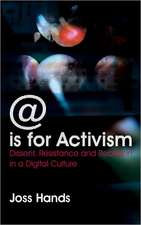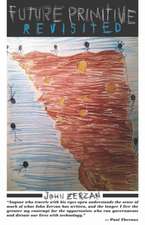Jihadi Culture: The Art and Social Practices of Militant Islamists
Editat de Thomas Hegghammeren Limba Engleză Paperback – 21 iun 2017
| Toate formatele și edițiile | Preț | Express |
|---|---|---|
| Paperback (1) | 193.38 lei 3-5 săpt. | +18.28 lei 6-10 zile |
| Cambridge University Press – 21 iun 2017 | 193.38 lei 3-5 săpt. | +18.28 lei 6-10 zile |
| Hardback (1) | 689.30 lei 6-8 săpt. | |
| Cambridge University Press – 21 iun 2017 | 689.30 lei 6-8 săpt. |
Preț: 193.38 lei
Nou
Puncte Express: 290
Preț estimativ în valută:
37.00€ • 38.71$ • 30.74£
37.00€ • 38.71$ • 30.74£
Carte disponibilă
Livrare economică 12-26 martie
Livrare express 25 februarie-01 martie pentru 28.27 lei
Preluare comenzi: 021 569.72.76
Specificații
ISBN-13: 9781107614567
ISBN-10: 1107614562
Pagini: 284
Dimensiuni: 153 x 228 x 14 mm
Greutate: 0.48 kg
Editura: Cambridge University Press
Colecția Cambridge University Press
Locul publicării:New York, United States
ISBN-10: 1107614562
Pagini: 284
Dimensiuni: 153 x 228 x 14 mm
Greutate: 0.48 kg
Editura: Cambridge University Press
Colecția Cambridge University Press
Locul publicării:New York, United States
Cuprins
Introduction: why study jihadi culture? Thomas Hegghammer; 1. Poetry in jihadi culture Robyn Creswell and Bernard Haykel; 2. A cappella songs (anashid) in jihadi culture Nelly Lahoud; 3. A musicological perspective on jihadi anashid Jonathan Pieslak; 4. The visual culture of jihad Afshon Ostovar; 5. A history of jihadi cinematography Anne Stenersen; 6. The Islamic dream tradition and jihadi militancy Iain R. Edgar and Gwynned de Looijer; 7. Contemporary martyrdom ideology and material culture David B. Cook; 8. Non-military practices in jihadi groups Thomas Hegghammer; Notes; Bibliography; Index.
Recenzii
'A learned tour de force by top scholars in the field, this book reminds us that warrior culture is not the superfluous byproduct of violence but rather the matrix that sustains and nourishes it. For experts and lay readers alike, Jihadi Culture will be a revelation.' Will McCants, The Brookings Institution
'There has been lots of recent scholarship on the arts of protest, partly because it humanizes the protestors when we see them doing things like writing poetry and playing music. No one has been more demonized in the US and Europe than jihadists, so they have not received this kind of treatment. Until now. A provocative and important book for all of us.' James M. Jasper, City University of New York and author of The Art of Moral Protest
'Jihadis are often perceived as little more than single-minded fighters and religious fanatics. Here is a book that challenges this view by supplying a remarkable inventory of jihadi cultural practices, ranging from poetry, song, and film all the way down to the interpretation of dreams. By turning our attention to the non-military realm and by stressing the cultural and aesthetic dimension of jihadi ideology and practice, this fascinating book raises new questions and opens up new avenues of research.' Stathis Kalyvas, Arnold Wolfers Professor of Political Science, Yale University, Connecticut
'Notwithstanding much valuable work on clandestine political organizations, our understanding of them is limited by a tendency to reifying their violent characteristics, forgetting about the other activities these groups perform. This fascinating volume contributes to filling a gap in our knowledge by a systematic analysis of the cultural dimension of the Jihadi movements. A must read contribution for those who want to understand violence.' Donatella della Porta, Dean of the Institute of Humanities and Social Sciences, Director of Centre of Social Movements Studies, Scuola Normale Superiore, Italy
'Using a wealth of primary sources, the contributing authors examine what goes on inside these organizations and what daily life is like for the foot-soldiers. They show that Islamist militants have a rich aesthetic culture and do much more than fight and train. Life in a jihadi group is in fact filled with poetry and music, and fighters spend time on surprising things like dream interpretation and weeping. Readers will discover an entirely new perspective on radical Islamists: that despite their reputation as macho men, they value humility, artistic sensitivity, and displays of emotion. Cultural practices are essential for understanding the jihadi world view and may shed important new light on decision-making and recruitment processes within the varied and diverse jihadi groups.' Jack Mason, Midwest Book Review
'… in this well-edited and serious volume Thomas Hegghammer - one of the world's foremost experts on jihadism - has put together a collection of essays by an impressive group of scholars analysing what culture Islamism's most adamant adherents might be said to possess.' Douglas Murray, The Spectator
'A broad and ambitious collection, Jihadi Culture offers a nuanced approach for understanding militant jihadism, not through dry doctrine, but through the power of culture - a subject that warrants such attention.' Rebecca Wolfe, The Times Literary Supplement
'There has been lots of recent scholarship on the arts of protest, partly because it humanizes the protestors when we see them doing things like writing poetry and playing music. No one has been more demonized in the US and Europe than jihadists, so they have not received this kind of treatment. Until now. A provocative and important book for all of us.' James M. Jasper, City University of New York and author of The Art of Moral Protest
'Jihadis are often perceived as little more than single-minded fighters and religious fanatics. Here is a book that challenges this view by supplying a remarkable inventory of jihadi cultural practices, ranging from poetry, song, and film all the way down to the interpretation of dreams. By turning our attention to the non-military realm and by stressing the cultural and aesthetic dimension of jihadi ideology and practice, this fascinating book raises new questions and opens up new avenues of research.' Stathis Kalyvas, Arnold Wolfers Professor of Political Science, Yale University, Connecticut
'Notwithstanding much valuable work on clandestine political organizations, our understanding of them is limited by a tendency to reifying their violent characteristics, forgetting about the other activities these groups perform. This fascinating volume contributes to filling a gap in our knowledge by a systematic analysis of the cultural dimension of the Jihadi movements. A must read contribution for those who want to understand violence.' Donatella della Porta, Dean of the Institute of Humanities and Social Sciences, Director of Centre of Social Movements Studies, Scuola Normale Superiore, Italy
'Using a wealth of primary sources, the contributing authors examine what goes on inside these organizations and what daily life is like for the foot-soldiers. They show that Islamist militants have a rich aesthetic culture and do much more than fight and train. Life in a jihadi group is in fact filled with poetry and music, and fighters spend time on surprising things like dream interpretation and weeping. Readers will discover an entirely new perspective on radical Islamists: that despite their reputation as macho men, they value humility, artistic sensitivity, and displays of emotion. Cultural practices are essential for understanding the jihadi world view and may shed important new light on decision-making and recruitment processes within the varied and diverse jihadi groups.' Jack Mason, Midwest Book Review
'… in this well-edited and serious volume Thomas Hegghammer - one of the world's foremost experts on jihadism - has put together a collection of essays by an impressive group of scholars analysing what culture Islamism's most adamant adherents might be said to possess.' Douglas Murray, The Spectator
'A broad and ambitious collection, Jihadi Culture offers a nuanced approach for understanding militant jihadism, not through dry doctrine, but through the power of culture - a subject that warrants such attention.' Rebecca Wolfe, The Times Literary Supplement
Descriere
This book studies the art forms and social practices that make up much of the daily life of jihadi culture.















